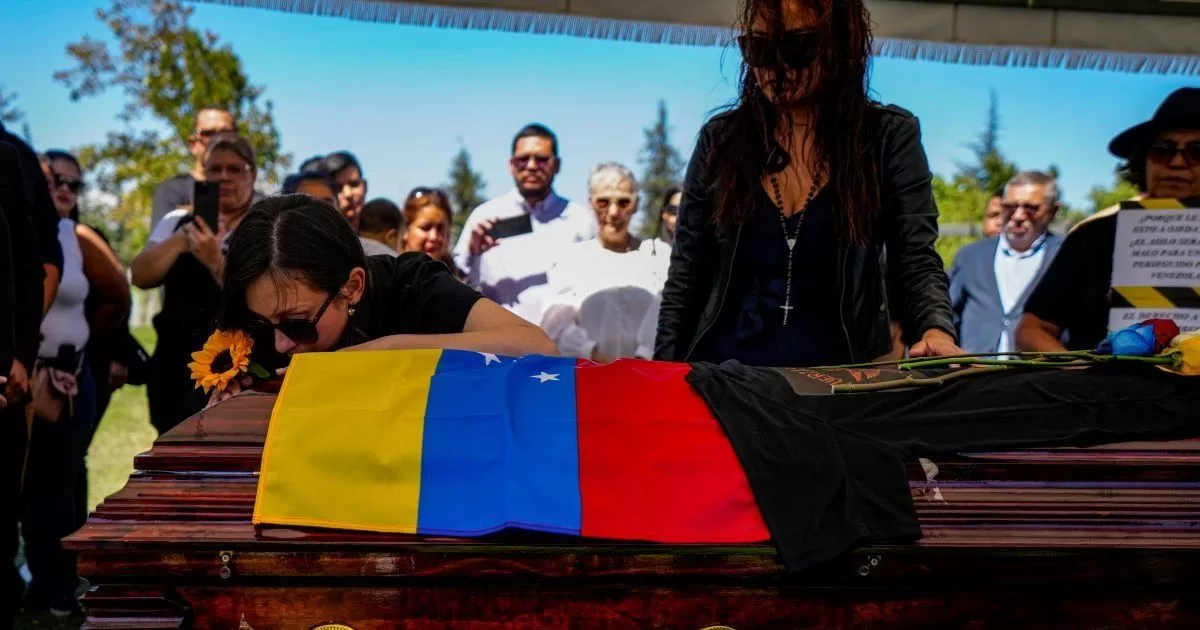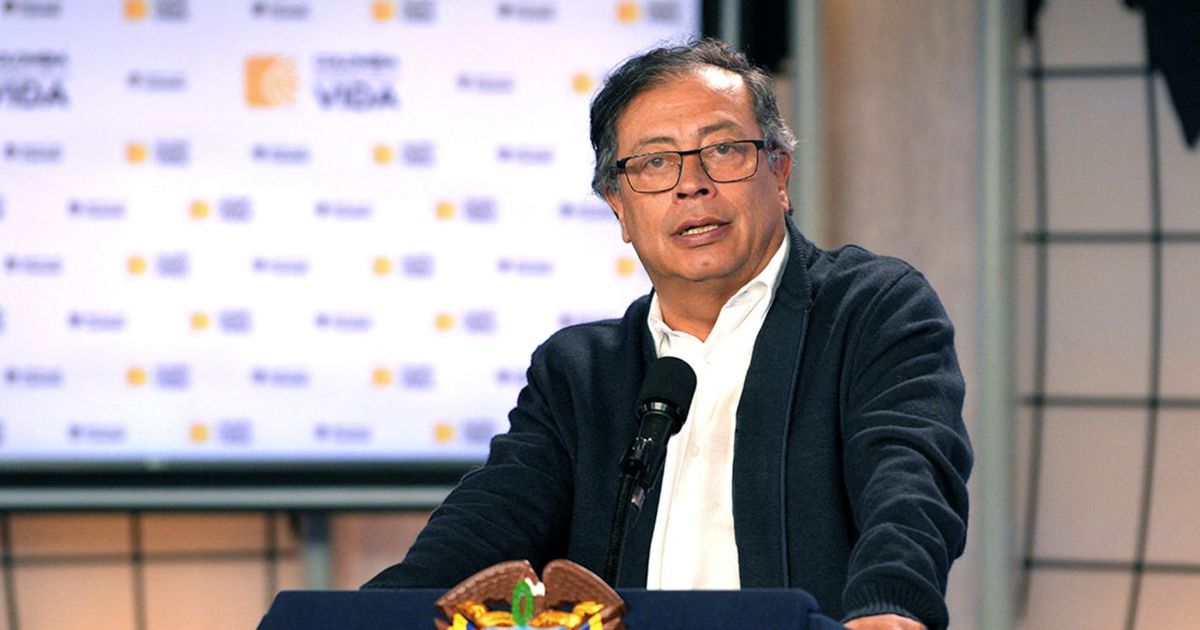The shocking news came on Thursday afternoon. Comedian, social debater and writer Shabana Rehman (46) had died of pancreatic cancer – which she had been diagnosed with in January.
It is no secret that her legacy still lives on, and her long struggle has left a big footprint.
Now details are emerging about what her last months were like.
Fighter’s will
For some she was only known as a comedian and entertainer, while for others her role as a rebel was considerably greater. Rehman is described by many as a woman who pushed boundaries, and who dared to shout loudly in the Norwegian public.
But it didn’t go completely smoothly.
Right after she and Kjersti Grini guested on Good Morning Norway on the occasion of the premiere of Farmen kendis, she ended up in the emergency room.
What she herself thought was venereal disease or a stomach ulcer turned out to be pancreatic cancer with spread. Doctors gave her two months to live.
Nevertheless, she made it all the way to the end of December, and was barely two days away from 2023.
The duo Bjørn Egil Halvorsen and Kjetil Bjørgan from Aftenposten have now created a podcast together with Rehman, documenting her journey over the past few months:
WILL TO FIGHTER: Bjørn Egil Halvorsen, who followed Shabana Rehman in the last months of her life, says that the diagnosis awakened a will to fight in her. Photo: Good Morning Norway/TV 2
– It was quite clear that when she got this cancer, it awakened a fighting spirit in her. She was open about her illness quite early on, and then she was curious about where it came from. Is it a human reaction, or is there something special about her? You know her story and what she has been through, so we wanted to go back and look at her 25 years in the public eye, he tells Good Morning Norway.
The podcast is told through her own words in the present tense, and looks back on large parts of her life. Over the course of the year, they met her around ten times, and despite receiving the disheartening news that there were two months to go – that didn’t stop her:
– She said that you gained a lot from being in operation, and that sitting down was not an option for her. It wasn’t right for her. She had to search, keep living and look for ways to keep her courage and spark up.
– Was she afraid?
– I don’t know for sure what she was thinking, but she kept saying that she didn’t panic. She kept saying that: “We’re all going to die”, didn’t she. She would rather focus on living life, and use the time she had.
– We were the ones who were supposed to carry on the tradition
One of those who knew her and with whom the social debater had a lot in common, is the journalist Shazia Majid from VG. Like Rehman, she grew up with the same background.
– An assault on free humour
– It is important to remember this context, because it is a completely new time today. We were the first daughters of migrant workers from Pakistan, Turkey and India. We were the ones who were supposed to continue the tradition, and our framework was extremely narrow, says Majid and continues:
– Almost no one got a higher education at the time, and almost everyone married young – straight out of high school to their cousins. We had a lot of honor killings in those days.
She says that when Rehman came on the pitch, the response was stormy. They were not used to these frameworks being broken, so her generation did not understand what was going on.
– We were a generation that was very afraid.
NEART: VG journalist Shazia Majid says that the attitudes of Shabana Rehman changed everything in the environment. Photo: Good Morning Norway/TV 2
And the reactions – they poured in. To say the least.
– They were hysterical. What she did was just very terrifying, because it was so daring. We didn’t dare talk about it among ourselves, so it became very violent for many. It was the means that overshadowed that message, we were a generation that was not equipped to understand her project, she says and states:
– We were too busy with our own battles, because we were all fighting for a form of freedom – to be able to live our lives the way we wanted. So it was a difficult time.
“The Mullah’s Promise”
And among these measures, there was one event that stood out. You may have heard about it before – about a small spontaneous incident in 2004.
When Rehman lifted Mullah Krekar, there was an uproar. She wrapped her arms around the mullah and lifted him so that he spluttered – and the reactions did not take long. She was threatened with death and reported to the police. Her family was watched with owlish eyes.
Shabana Rehman lifted Mullah Krekar
– I have no right to carry her, and she has no right to carry me or touch me. What she shows is contempt for me. Why doesn’t she kiss me as well? My wife is present in the hall. What if this picture is shown to an imam? I am going to sue her, and demand that all the photographers delete the pictures that were now taken, exclaimed Krekar after the promise.
– There was a hierarchy of power there, she also comes in from the street – it was more or less an impulse. She was going out for a walk in town, then she discovered that Krekar was there, and that there was a strange atmosphere, she said. She also thought that she might test him a bit, if he was a danger to the security of this kingdom, says Halvorsen.
HARD WEATHER: Shabana Rehman was in rough weather after the “mullah’s promise”. Pictured here shortly after the promise, on the way to an NRK recording. Photo: Håkon Mosvold Larsen/NTB
– We also know the history, but it was a raw act of impulse.
– A liberation struggle
The consequences were severe, but it was not in vain. Rehman helped to change what many describe as ingrained attitudes, and tried to multiply the rules that applied in her world:
– The most important thing Shabana did was that she went first. And paved the way for my generation. It was as I write in my comment the day she diedthat she accepted the protection, so the rest of us escaped, says Majid, bringing tears to his eyes.
– At the time we didn’t see it. I didn’t either, and it took me many years to realize that what she was doing was a liberation struggle. Not just for herself, but on behalf of the entire generation.
Furthermore, she says that what appeared to be an impulse with Mullah Krekar was based on a deeper insight into how the patriarchy worked.
– What she did by making him powerless at that moment gave everyone an opportunity to see that it is possible to disarm attitudes and structures that are insanely stubborn.
– You must be virtuous, a virgin and take care of your reputation
– She was very ahead of her time, and we stand on her shoulders. I see it very clearly, and I saw it very early on that this was how she had paved the way for me and many like me. Today, there are girls with minority backgrounds who do not understand what we have been through, and who do not understand all the baluba. There have been hard times.
The power and the will
Everyone saw that during her last months, she became sicker and sicker. Halvorsen also noticed that, when he documented her everyday life. She did not always feel in a position to contribute.
– She got sicker and sicker, and of course it weakened. After all, we met to chat when she was fit for it, otherwise it would have been very difficult. What was striking in all these meetings was that even though she was quite out of shape, she talked a lot about the past and these things that Shazia (Majid. journ. note) talked about, he says and continues:
– That activism and commitment was self-igniting, so she spoke up in revs and energy even though she was completely down. It says something about the power she had and the will to break through. But she was weakened. Everyone could see that, he states.
Recently, the news came that she is getting a funeral at the state’s expense, and that not many young, committed comedians and rebels get that. Majid thinks that is appropriate.
– It is so incredibly fitting. She is also the first with an immigrant background to get it, so I think it is absolutely right. She is the greatest women’s advocate of our time.







